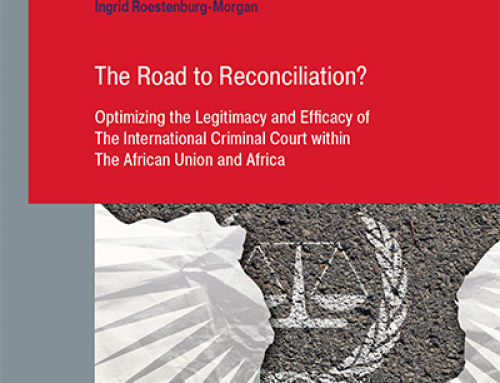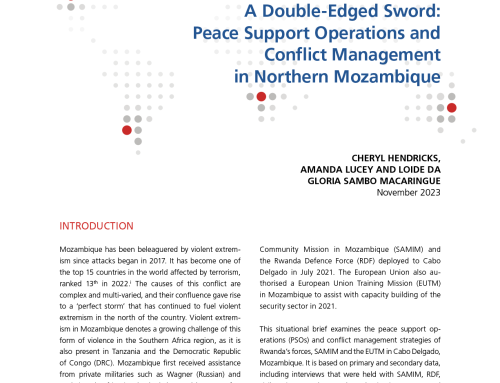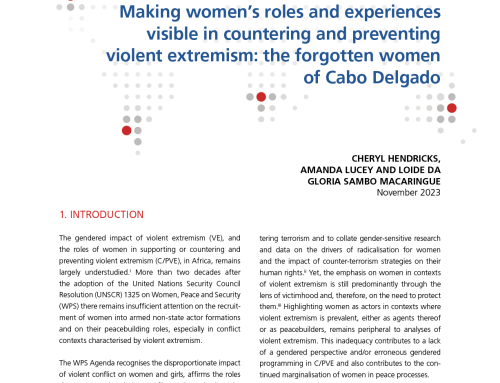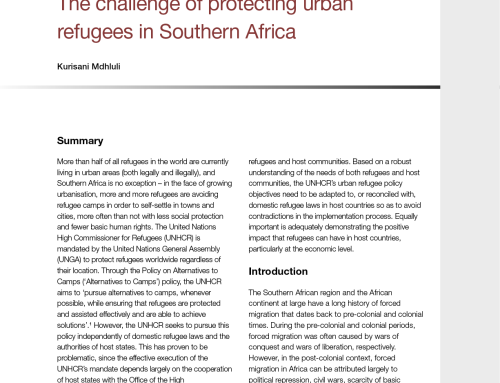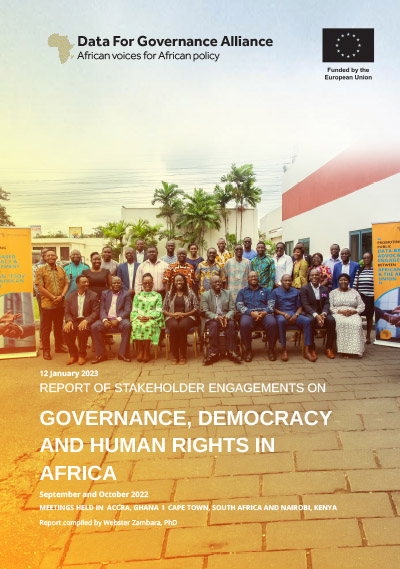
Report of Stakeholder Engagements on Governance, Democracy and Human Rights in Africa
The Data for Governance Alliance (D4GA) consortium convened three meetings in West Africa (Accra, Ghana), Southern Africa (Cape Town, South Africa) and East Africa (Nairobi, Kenya) between September and October 2022 under the theme “Enhancing Pan-African civil society participation and engagement with the African Governance Platform (AGP) in protection and promotion of democracy, governance and human and people’s rights in Africa”. The three meetings marked the beginning of a three-and-half-years’ project that seeks to create platforms for nine AGA organs and Pan-African civil society to interact and work to improve governance, democracy and human rights in Africa through data-based advocacy and engagement leading to strengthened collaboration on AGP agenda and African Union (AU) Agenda 2063 implementation. The project, led by the Afrobarometer and funded by the European Union Commission (EUC), will adopt various advocacy strategies to achieve its objectives of increasing African citizens’ awareness of the work of the AGA organs, facilitate access to AGA Protocols and decisions to improve governance, democracy and human rights in Africa.
The project is premised on the fact that, over the decades, progress in democracy, good governance and respect for human rights across Africa has been halting at best, and as reported by the Afrobarometer, Mo Ibrahim Founda-tion, Freedom House and others, there are concerns about regression in many countries. These concerns have been heightened as governments claim extraordinary powers in the guise of responding to challenges brought about by the COVID-19 pandemic. For example, the World Justice Project 2020 Rule of Law Index shows that 65% of Sub-Saharan Africa countries scored below the median, and there is shrinking space for legal recourse to protect human rights, for example the dissolution of the Southern African Development Community Tribunal, and the apparent weakening of the African Commission on Human and People’s Rights.
Amidst these challenges is the lack of citizens’ access to information and data in Africa. While both the AU’s Agenda 2063 and the UN’s Sustainable Development Goals share citizens-centered approaches to governance, there is evidence of declining coverage, quality and frequency of publicly available data for key categories in Africa. Coupled with this, there is a lack of awareness and visibility of the AGP agenda and efforts to promote it. CSOs often face challenges in accessing information about the African Union platforms and processes. Compliance to AGP Protocols is also inhibited by a lack of transparency and access to information. This project, and its planned activities seek to tackle these impediments to CSO actions and the AGP success in common pursuit of Agenda 2063.
There are several indicators which prove that the engagements overwhelmingly achieved their intended objectives as shown by the enthusiasm among participants to engage, share information and experiences, network and co-create programmes that will be accomplished collaboratively in the short to mid-term. Out of the 9 AGP that the D4GA initially targeted, 7 participated, and the deliberations with D4GA all leaned towards leveraging Afrobarometer data for Africa’s development.
Africa has made progress in advancing governance, democracy and human rights, yet a continual approach is required as there are new developments including unconstitutional change of government, third termism, terrorism and climate change that threaten the gains made. These were worsened by the Covid-19 pandemic which not only widened the existing fault-lines in many countries, but worsened the human rights situation as well as rampant corruption. This situation makes imperative the issues of governance, democracy and human rights, and Afrobarometer has made remarkable progress in availing cumulative data from African voices that is available for data-based advocacy. The three regional meetings created engagement platforms for collaboration between CSOs and the AGA organs to dialogue and reflect on the importance of data-based decisions towards achieving the aspirations in Agenda 2063. During the dialogue sessions it emerged that already there are many areas where CSOs and AGP are partnering to achieve the aspirations of Agenda 2063 as well as the SDGs. However, the use of Afrobarometer data to promote data-based decisions is a new frontier of cooperation that should be pursued by both parties in an effort to promote policy making that is based on grounded research. The Afrobarometer data drawn from over two-thirds of the AU members provides ample evidence of the pulse of the continent regarding the citizens’ perceptions on key issues that affect them.
By: Webster Zambara
Pages: 51
Dimensions: A4
Date of publication: 2023

